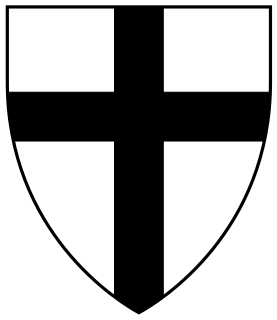 W
WThe Order of Brothers of the German House of Saint Mary in Jerusalem, commonly the Teutonic Order, is a Catholic religious order founded as a military order c. 1192 in Acre, Kingdom of Jerusalem.
 W
WHermann Balk, also known as Hermann von Balk or Hermann Balke, was a Knight-Brother of the Teutonic Order and its first Landmeister, or Provincial Master, in both Prussia and Livonia. From 1219 to 1227, he served as the Deutschmeister in the Order's Province of Alemannia. Balk led the crusaders during the Prussian Crusade and became Master of Prussia in 1230. From 1237 to 1238, he also served in the additional role as Master of Livonia.
 W
WHans von Baysen or Jan Bażyński was a Prussian knight and statesman, leader of the Prussian Confederation and the first Polish governor of Royal Prussia.
 W
WTimothy Charles Robert Noel Bentinck, 12th Earl of Portland,, commonly known as Tim Bentinck, is an English actor and writer, known for his long-running role as David Archer in the BBC Radio 4 series, The Archers.
 W
WDipold, known in German as Diepold von Schweinspünt, was a German ministerialis who was raised to the Duchy of Spoleto in 1209. Of Bavarian origin, he was a reputed younger son of Berthold II of Vohburg and Adelaide of Ballenstedt. He was originally a vassal of the count of Lechsgemünd. His career in the Mezzogiorno was marked by continual raids and sieges, battles, and sacks recounted in exhaustive detail by Richard of San Germano, a monk of the abbey whose lands were especially hard hit.
 W
WSir William Douglas of Nithsdale was a Scottish knight and Northern Crusader.
 W
WMaximilian, Count von Merveldt, among the most famous of an illustrious old Westphalian family, entered Habsburg military service, rose to the rank of General of Cavalry, served as Francis II, Holy Roman Emperor's ambassador to Russia, and became special envoy extraordinaire to the Court of St. James's. He fought with distinction in the wars between the Habsburg and the Ottoman empires, the French Revolutionary Wars, and the Napoleonic Wars.
 W
WHeinrich von Plötzke was an officer of the Teutonic Order during the late 13th and early 14th centuries. Born in Płock (Plotzk) in the independent Duchy of Masovia,, he was a descendant of the hereditary dukes of Plock but never took the formal title due to the conflict of his family with the ruling Piast dynasty of Poland.
 W
WDamian Hugo Philipp von Schönborn was Prince-Bishop of Speyer (1719–1743), Bishop of Konstanz (1740–1743) and a cardinal (1713). He participated in papal conclaves in 1721, 1724 and 1730.
 W
WJacob Taets van Amerongen was a land commander of the Utrecht-based order of Teutonic Knights in what are now the Netherlands. He made the pilgrimage to the Holy Land as a young man. He became commander of the order at a time when Protestants were gaining control of northern Europe. He managed to resist demands to dissolve the order and use its property for charity. Soon after his death the order became a Protestant organization.
 W
WCount Ferdinand Ernst Joseph Gabriel von Waldstein und Wartenberg was a German nobleman and patron of the arts. A member of the Bohemian House of Waldstein and an early patron of Ludwig van Beethoven, his political and military roles included the office of a Geheimrat in Bonn, commander (Komtur) of the Teutonic Order, and (briefly) colonel of a light infantry regiment that he had raised.
 W
WUnico Wilhelm, Count van Wassenaer Obdam was a Dutch nobleman who was a diplomat, composer, and administrator. He reorganized the Bailiwick of Utrecht of the Teutonic Order. His most important surviving compositions are the Concerti Armonici, which until 1980 had been misattributed to the Italian composer Giovanni Battista Pergolesi (1710–1736) and to Carlo Ricciotti (1681–1756).
 W
WWolfgang of the Palatinate was a German nobleman from the House of Wittelsbach. He was Count Palatine of Neumarkt and governor of the Upper Palatinate.